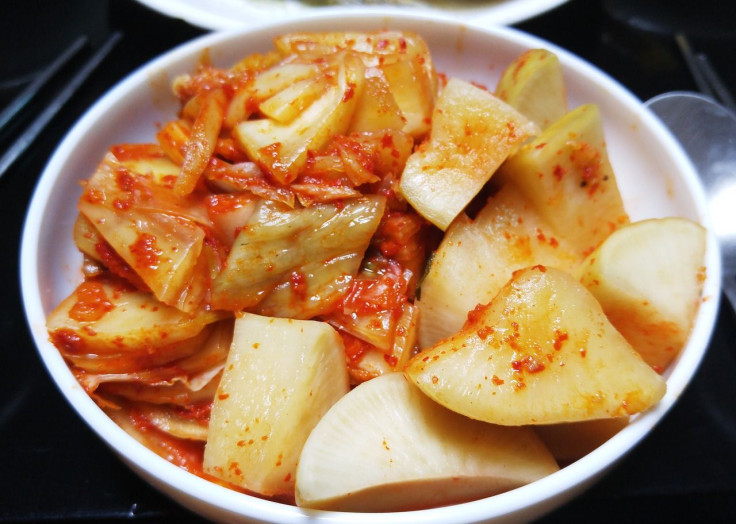Coronavirus: Alternative Remedies Include Cow Poop, Kimchi, And Many More

KEY POINTS
- Coronavirus is spreading at a rate faster than the world has prepared for
- People now fear for their health and have become wary of others whenever they go out
- Surprising "alternative" remedies have come out in the wake of the rapid spread
The new coronavirus took the world by storm, and everyone, even the most advanced countries, was unprepared for the danger it unleashed. From a measly few hundred infected, it ballooned to more than 16,000 infected patients with over 310 dead in less than two months.
According to experts, the spread of the so-called 2019-nCoV is more rapid compared to its cousins, the SARS and MERS-CoV. With the vaccine or antidote still in the early stages of development, some people are trying out alternative remedies to protect or cure them of the virus. While there may be some medical doctors who suggested several alternative remedies, these should not be viewed as a cure.
Like most medical advertisements, it is recommended to see a doctor if your symptoms persist or if it gets worse. So what are some of these alternative remedies?
Chinese Herbal Remedy
Most people in China have been lining up to purchase Shuanghuanglian, an herbal remedy that observes the philosophies of traditional Chinese medication or TCM. The liquid, which means double yellow connect in English, is derived from the Lonicera Japonica flower bud and Forsythia suspense fruit, as well as Scutellaria baicalensis plants. The Shanghai Institute of Materia Medica, which is a section of the Chinese Academy of Sciences, has claimed that this remedy could help in inhibiting the coronavirus.
Both CCTV and Xinhua News Agency have stated in news reports that clinical tests show the remedy may be effective. This led people to form long lines at different TCM outlets all over China. Big Chinese e-commerce portals like JD.com and Taobao.com say they have depleted their Shuanghuanglian stocks. After being criticized for its endorsement of Shuanghuanglian, however, the Shanghai Institute doubled down and clarified that its findings were actually endorsed as accurate by the Wuhan Institute of Virology.
Chicken Soup
Chicken soup is said to have helped some patients survive the new coronavirus. Zhang Jinnong, a doctor who works at Wuhan Union Hospital, said he contracted 2019 nCoV in early January, but he was able to survive with help from a bowl of chicken soup. He claims to have nursed himself back to normal health by taking regular medication and chicken soup in the comfort of his home.
In an interview with the Wuhan Evening Daily and the Changjiang Daily, Zhang recommends drinking chicken soup regularly. He said that the soup causes your body’s temperature to rise, making it a very unfavorable environment for the virus to thrive.
Kimchi
This spicy dish made of fermented cabbage has long been claimed by Koreans to cure many illnesses like regular flu, bird flu, and SARS. Many Koreans have been turning to this dish to protect themselves from the 2019 nCoV.
In a recent statement, however, the Health Ministry of South Korea said that eating kimchi may give people a false sense of protection. The reason is that recent studies indicate the dish does not prevent 2019 nCoV infection. The government agency went on to say that the best method in preventing the spread of the new coronavirus is by washing your hands often.
Cow Waste
In India, the president of Hindu Mahasabha, Swami Chakrapani Maharaj, said that consuming cow dung and urine will prevent the devastating effect of the 2019 nCoV. He said that those who wanted to consume the waste should be coupled with a special yagna or ritual that must be done in front of a fire. Maharaj said if done properly, it can eliminate 2019 nCoV.
He recommended that patients who wish protection from the novel coronavirus should apply cow dung on their bodies to be saved. A special yagna ritual will then be performed to exterminate the deadly virus. Maharaj did not elaborate; however, how to make the cow dung palatable.
Ayurveda and Homeopathy
The government in India released an advisory based on traditional medicine practice of Ayurveda, Unani, and homeopathy. The main essence of ayurvedic medicine is universal and involves maintaining personal hygiene, as well as washing your hands frequently with soap and water for about twenty seconds. It also recommends covering your face when coughing and sneezing. The ayurvedic practice also includes staying at home when feeling or are sick.
Indian health officials also suggest Shadang Paniya; a mixture often used to combat fever and headaches. Other traditional medications, like putting sesame oil drops in each nostril each morning, were also suggested.
© Copyright IBTimes 2024. All rights reserved.





















